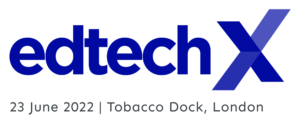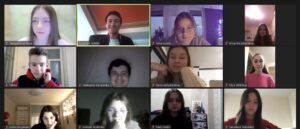Phoenix Space has successfully concluded its 5-month long academic competition, the LaunchPad Challenge.
The winning team is Ecstatic Paradox, from the country of Nepal, consisting of Abhishek Karna, Aaviskar Paudyal, and Bibas Basnet. Their topic was Fungi: The Supreme Resource. On The Development of a Fungi-based Ecosystem and Sustainable Martian Society.
The combination of thorough research, original and clear thinking, strong imagination, and a well-thought-out vision for their solution was brilliantly communicated at every stage of the competition.
Ecstatic Paradox will receive a cash prize of US $3,000 and a 30-minute live question and answer session with NASA astronaut Scott Parazynski.
The winners were announced on a live webinar on 9 October, as a part of Phoenix Space’s participation in World Space Week. We were honored to have had astronaut Scott Parazynski join us and make the announcement of Ecstatic Paradox as the winning team.
Four other teams made it to the final round.
- Entangled Pair, India, Topic: Power Production on Mars: Space-based Solar Power Satellite
- LGS Defence Team C, Pakistan, Topic: Genesis of life on Mars: Thermally Assisted Retrieval of Water from the Martian Subsurface
- LGS Defence Team D, Pakistan, Topic: Using Tardigrade Protein to Survive Martian Climate
- TransMars, United Kingdom, Topic: A Comprehensive Solution to the Mars Colony Vehicle Problem
Each of these teams will receive a cash prize of US $1,000. All five of the finalist teams will also receive an autographed copy of Scott Parazynski’s book, The Sky Below.
Phoenix Space thanks all the entrants, our judges, partners, and volunteers for making the inaugural edition of the LaunchPad Challenge such a great success. We look forward to bringing the 2022 edition of the competition to the world!
About the LaunchPad Challenge
Over 100 teams from 29 countries registered for the competition, which challenged teams to research and develop an idea-driven solution to a problem related to human habitation of Mars. Our five finalist teams made it through three rounds of competition. They created an initial written entry and a brief video in the first round, revised and created a more in-depth written report in the semi-finals, and finally presented their work and solution live via webinar to our senior panel of judges in the final round.
Full details of the competition are available here.
LaunchPad Challenge Judges
Our esteemed panel of judges generously donated their time and efforts to reviewing and scoring the entries. Thank yous go out to:
- Dr. Ugur Guven, who also served as our advisor for this competition
- Dr. Simon Foster
- Dr. Rana Dajani
- Dr. Jackie Bell
- Dr. T.H. Culhane
- Dr. Ioana Cozmuta
LaunchPad Challenge Partners
Many thanks to our partners in this event:
- Altruistic.io for donating the cash prizes
- Our community partners: Space Lab at Imperial College, London; Arab Science Week, and World Space Week Association
About Phoenix Space
Phoenix Space is a non-profit organization focused on providing STEM education, based around the inspirational theme of space science, to refugee and disadvantaged students in the Middle East to improve their life opportunities and empower them and their communities.



